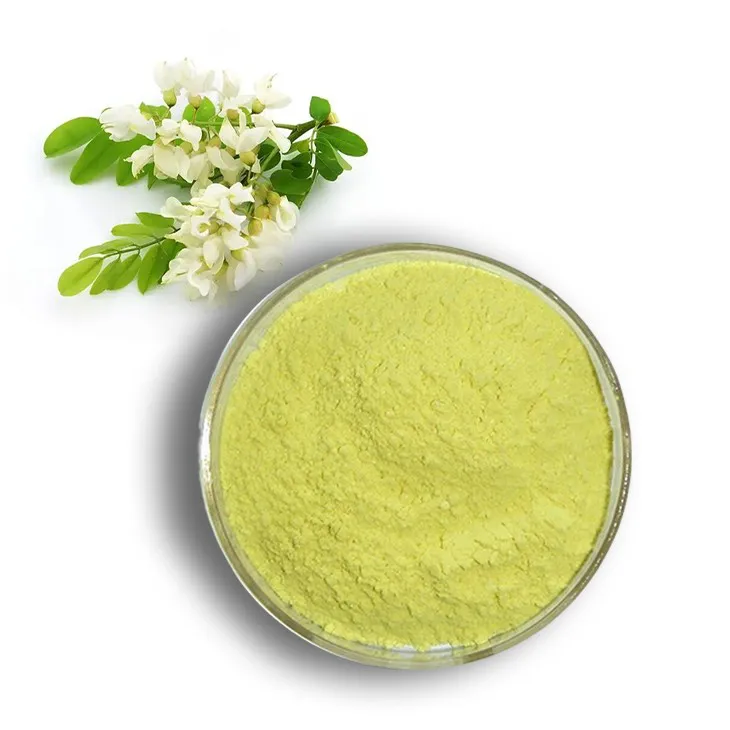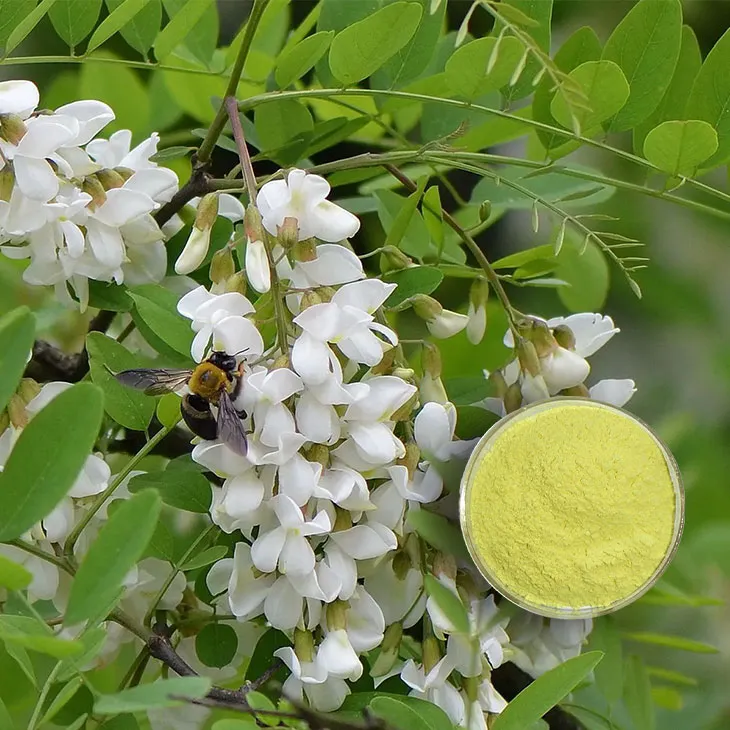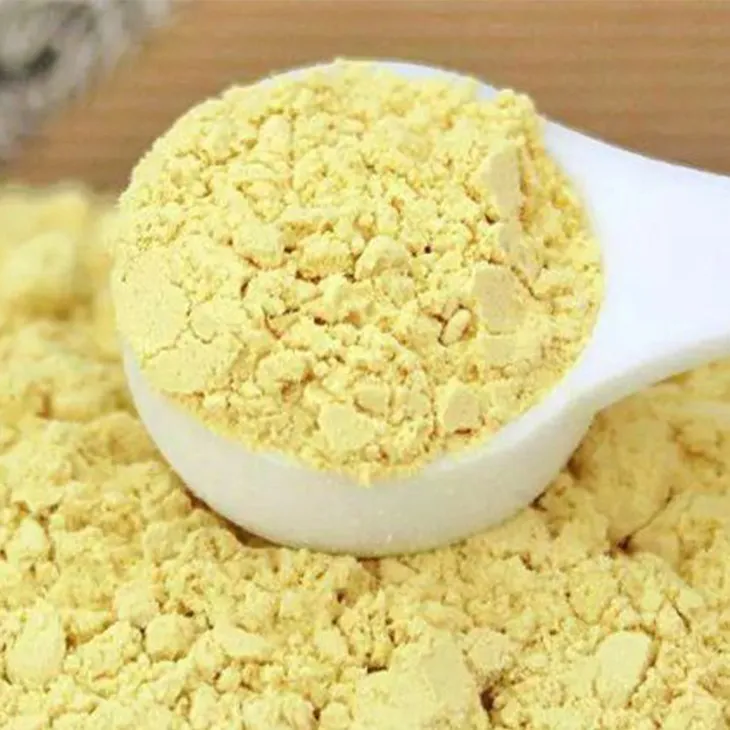- 0086-571-85302990
- sales@greenskybio.com
Commercial Advantages of Organic Troxerutin.
2024-12-15

1. Introduction to Organic Troxerutin
Organic Troxerutin is a compound that has been gaining increasing attention in various industries. It is a derivative of rutin and has unique chemical and biological properties. With the growing demand for high - quality and natural - origin substances, organic Troxerutin stands out for its potential commercial benefits.

2. Commercial Advantages in the Pharmaceutical Market
2.1 Purity and Safety
In the pharmaceutical market, the purity of a compound is of utmost importance. Organic Troxerutin, being an organic compound, has an edge over non - organic forms. It is often considered more pure and with fewer potential impurities. This aspect makes it a safer option for medical applications. For example, in the treatment of blood - related disorders, any impurity in the drug could lead to unwanted side effects or reduced efficacy. Since organic Troxerutin has a higher level of purity, it can be more reliably used in such treatments.
2.2 Medical Efficacy
One of the key medical benefits of organic Troxerutin is its ability to effectively improve capillary permeability. Capillary permeability is crucial for the proper functioning of the micro - circulation system in the human body. Many patients with micro - circulation problems, such as those with diabetic complications or certain cardiovascular disorders, can benefit from the use of organic Troxerutin. By improving capillary permeability, it helps in the better exchange of nutrients, oxygen, and waste products between the blood and the surrounding tissues.

3. Commercial Advantages in the Cosmetics Industry
3.1 Meeting Consumer Preferences
In the cosmetics industry, consumer preferences are constantly evolving. Currently, there is a significant trend towards organic products for skin care. Organic Troxerutin fits well into this trend. Consumers are more likely to choose products that contain organic ingredients as they are perceived to be more natural and less harmful to the skin. This preference for organic ingredients gives organic Troxerutin a great market potential in the cosmetics field.
3.2 Skin - Beneficial Properties
Organic Troxerutin has several properties that are beneficial for the skin. Firstly, it has antioxidant properties. In the skin, free radicals are constantly generated due to environmental factors such as UV radiation, pollution, and smoking. These free radicals can cause damage to the skin cells, leading to premature aging, wrinkles, and dullness. The antioxidant properties of organic Troxerutin can help neutralize these free radicals, thereby protecting the skin from damage. Secondly, it can enhance the skin's blood circulation. Improved blood circulation in the skin gives the skin a healthy glow. It can be used in anti - aging creams and lotions, which are highly sought - after products in the cosmetics market.

4. Long - Term Production Cost and Market Competitiveness
4.1 Initial Investment and Long - Term Cost
Although the initial investment in organic production of Troxerutin may be higher compared to non - organic production methods, it has long - term cost - saving potential. Organic production often requires more stringent quality control measures, which may lead to higher upfront costs. However, in the long run, as the market demand for high - quality organic products grows, the cost per unit of organic Troxerutin can be optimized. The quality - driven market demand for organic Troxerutin can lead to higher profit margins.
4.2 Environmental and Brand Advantages
Organic production of Troxerutin also complies with the growing global trend of environmental protection and sustainable development. In today's world, consumers are not only interested in the product itself but also in how it is produced. Organic production methods are generally more environmentally friendly, with reduced use of synthetic pesticides and fertilizers. This aspect can enhance the brand image of products containing organic Troxerutin. A positive brand image can further increase its market competitiveness, as consumers are more likely to choose products from brands that they perceive as being environmentally responsible.
5. Conclusion
Overall, organic Troxerutin has significant commercial advantages in the pharmaceutical, cosmetics, and long - term production cost and market competitiveness aspects. Its purity and safety in the pharmaceutical market, its skin - beneficial properties in the cosmetics industry, and its long - term cost - saving potential and environmental - friendly image all contribute to its commercial value. As the market continues to evolve and consumers become more demanding in terms of quality and environmental responsibility, organic Troxerutin is well - positioned to capitalize on these trends and achieve greater commercial success.
FAQ:
What are the main commercial advantages of Organic Troxerutin in the pharmaceutical market?
Organic Troxerutin has several commercial advantages in the pharmaceutical market. It is often considered more pure with fewer potential impurities compared to non - organic forms, which makes it safer and more reliable for medical applications. For example, it can effectively improve capillary permeability, which is crucial for treating blood - related disorders, especially for patients with micro - circulation problems.
Why does Organic Troxerutin have great market potential in the cosmetics industry?
In the cosmetics industry, Organic Troxerutin has great market potential because consumers are increasingly inclined towards organic products for skin care. It has antioxidant properties that can protect the skin from free - radical damage, so it can be used in anti - aging creams and lotions. Additionally, it can enhance the skin's blood circulation, giving the skin a healthy glow.
Is the production cost of Organic Troxerutin high?
Although the initial investment in organic production may be higher, in the long run, the quality - driven market demand for Organic Troxerutin can lead to higher profit margins. Also, organic production complies with the global trend of environmental protection and sustainable development, which can further enhance its brand image and market competitiveness.
How does Organic Troxerutin improve capillary permeability?
The exact mechanism by which Organic Troxerutin improves capillary permeability is complex and still under research. However, it is known that its chemical properties allow it to interact with the cells and tissues in the capillaries in a way that promotes better fluid and nutrient exchange, which is beneficial for overall micro - circulation.
What are the environmental benefits of Organic Troxerutin production?
Organic Troxerutin production complies with the growing global trend of environmental protection and sustainable development. Organic production methods typically involve fewer synthetic chemicals and more natural and sustainable farming or manufacturing processes, which can reduce pollution and have a positive impact on the ecosystem.
Related literature
- The Role of Organic Compounds in Pharmaceutical and Cosmetic Industries"
- "Advantages of Organic Substances in Micro - circulation Treatment"
- "Organic Production and Market Competitiveness in the Cosmetics Sector"
- ▶ Hesperidin
- ▶ citrus bioflavonoids
- ▶ plant extract
- ▶ lycopene
- ▶ Diosmin
- ▶ Grape seed extract
- ▶ Sea buckthorn Juice Powder
- ▶ Beetroot powder
- ▶ Hops Extract
- ▶ Artichoke Extract
- ▶ Reishi mushroom extract
- ▶ Astaxanthin
- ▶ Green Tea Extract
- ▶ Curcumin Extract
- ▶ Horse Chestnut Extract
- ▶ Other Problems
- ▶ Boswellia Serrata Extract
- ▶ Resveratrol Extract
- ▶ Marigold Extract
- ▶ Grape Leaf Extract
- ▶ blog3
- ▶ blog4
- ▶ blog5
-
Pure 85% Tomentil Extract.
2024-12-15
-
Chia Seed Powder
2024-12-15
-
Chasteberry Extract
2024-12-15
-
Fenugreek Extract Powder
2024-12-15
-
Agaricus Blazei Extract
2024-12-15
-
Selenium yeast
2024-12-15
-
Aguaje Extract
2024-12-15
-
Black Rice Extract
2024-12-15
-
Honeysuckle Pollen
2024-12-15
-
Garcinia Cambogia Extract
2024-12-15
-
Sophora Japonica Flower Extract
2024-12-15





















